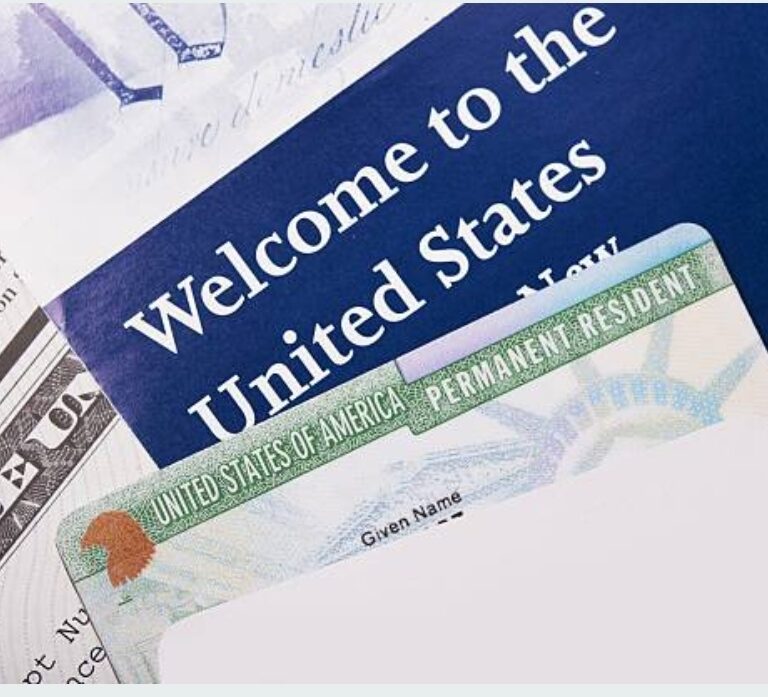10 In-Demand Jobs That Offer Work Visa Sponsorship Globally
The opportunity to work abroad is a dream for many, offering not just professional growth but also cultural and personal enrichment. However, navigating the complexities of securing a job and obtaining a visa can often be challenging. Thankfully, there are industries and professions worldwide that actively seek international talent and are willing to sponsor work visas. Below, we explore ten in-demand jobs that often come with work visa sponsorship globally.
1. Software Developers and IT Professionals
Why They Are in Demand
The tech industry continues to grow exponentially, with advancements in artificial intelligence, blockchain, cloud computing, and cybersecurity. Companies worldwide face a persistent skills gap, making software developers, IT managers, and data scientists indispensable. Digital transformation across industries further boosts demand for professionals who can design systems, secure networks, and analyze data.
Countries Hiring
- United States: Tech giants like Google, Amazon, Microsoft, and smaller startups routinely sponsor H-1B visas for software engineers, data scientists, and IT specialists.
- Canada: With its Global Talent Stream program, Canada offers expedited work visas for tech professionals, particularly in cities like Toronto, Vancouver, and Montreal.
- Germany: As part of the EU Blue Card program, Germany actively seeks IT specialists, especially in fintech, automotive tech, and industrial automation sectors.
- Australia: The Global Talent Visa program targets skilled tech workers in AI, cybersecurity, and robotics.
- United Kingdom: The UK’s Skilled Worker Visa includes IT and tech roles in its shortage occupation list, encouraging foreign talent.
Skills and Qualifications Needed
- Strong command of programming languages such as Python, Java, C++, and frameworks like React or Node.js.
- Certifications in high-demand areas like AWS Certified Solutions Architect, Microsoft Azure, or Certified Information Systems Security Professional (CISSP).
- Bachelor’s or Master’s degree in Computer Science, Data Science, Information Technology, or related fields.
- Experience in agile development, project management, and using tools like JIRA or Git is often an advantage.
- Soft skills such as problem-solving, teamwork, and adaptability are also highly valued.
Salary Expectations
Salaries vary significantly depending on location:
- United States: $90,000 to $150,000+ annually.
- Canada: CAD 80,000 to CAD 120,000.
- Germany: €50,000 to €90,000.
- Australia: AUD 85,000 to AUD 120,000.
- UK: £40,000 to £75,000.
How to Apply
- Networking: Build a professional network on platforms like LinkedIn. Engage with tech communities or attend global conferences.
- Online Job Boards: Use platforms such as Indeed, Glassdoor, and AngelList to find employers offering visa sponsorship.
- Specialized Programs: Explore country-specific initiatives like Canada’s Global Talent Stream or Australia’s Global Talent Visa.
In-demand IT professionals not only enjoy lucrative career opportunities but also play a crucial role in shaping the digital future globally.
2. Healthcare Professionals
Why They Are in Demand
Healthcare systems worldwide face significant staffing shortages, driven by aging populations, rising chronic illnesses, and the ongoing impacts of pandemics like COVID-19. The growing demand for preventive care and specialized treatments has further amplified the need for doctors, nurses, and allied health workers. In some countries, domestic training pipelines are insufficient to meet demand, leading to a reliance on skilled international professionals.
Countries Hiring
- United Kingdom: The National Health Service (NHS) actively recruits internationally trained nurses, doctors, and midwives, offering support for visa sponsorship and relocation.
- Australia: Medical professionals are listed on the Medium and Long-Term Strategic Skills List (MLTSSL), making it easier for them to secure skilled worker visas.
- United States: Healthcare professionals, particularly nurses and physical therapists, are eligible for EB-2 and EB-3 green card categories. Hospitals and medical facilities often sponsor these visas.
- Canada: Through programs like the Federal Skilled Worker Program, Canada recruits nurses and allied healthcare professionals, especially in underserved rural areas.
- Germany: With a growing elderly population, Germany has a high demand for geriatric nurses and healthcare assistants, facilitated through the EU Blue Card program.
Skills and Qualifications Needed
- A recognized medical degree in fields such as medicine, nursing, pharmacy, or allied health sciences.
- Licensing or registration with relevant medical councils, such as:
- GMC (General Medical Council) for doctors in the UK.
- AMA (American Medical Association) or NCLEX certification for nurses in the US.
- AHPRA (Australian Health Practitioner Regulation Agency) for Australia.
- English language proficiency, often validated through standardized tests like IELTS, TOEFL, or OET (Occupational English Test).
- Specialized training or certifications in areas such as critical care, oncology, or geriatrics may be an added advantage.
Salary Expectations
- United Kingdom: £25,000 to £70,000 annually for nurses and doctors, with consultants earning more.
- Australia: AUD 60,000 to AUD 150,000+, depending on specialization.
- United States: $60,000 to $200,000+, varying by role and experience.
- Canada: CAD 50,000 to CAD 120,000, with regional variations.
- Germany: €40,000 to €70,000, particularly for nurses and healthcare assistants.
Pathways for Employment
- Recruitment Agencies: Specialized agencies like O’Grady Peyton (US) and Medacs Healthcare (UK) help healthcare professionals secure jobs abroad with visa sponsorship.
- Country-Specific Programs: Programs such as the NHS International Recruitment initiative (UK) and the Express Entry system (Canada) streamline the process.
- Government Agreements: Bilateral agreements between countries (e.g., the UK and the Philippines) facilitate the recruitment of nurses and medical workers.
Challenges to Consider
- Licensing exams: Many countries require passing local exams (e.g., USMLE for the US, PLAB for the UK).
- Cultural adjustment: Understanding healthcare systems and practices in the destination country.
- Workload: Some regions may have high patient-to-staff ratios, leading to demanding schedules.
Healthcare professionals are vital to the well-being of societies, and their skills are highly sought after worldwide, offering rewarding careers and opportunities for global mobility.
3. Engineers
Why They Are in Demand
Engineers are the backbone of industrial growth, infrastructure development, and technological innovation. As countries invest heavily in infrastructure, renewable energy, and manufacturing, the demand for engineers in fields such as civil, mechanical, electrical, and aerospace engineering has surged. Specialized roles in automation, robotics, and environmental engineering are also on the rise, driven by global efforts to embrace sustainability and innovation.
Countries Hiring
- Canada: Engineers are listed as in-demand under the Express Entry program, particularly in civil, mechanical, and electrical engineering fields. Provinces like Ontario and Alberta actively recruit engineering talent.
- Germany: As an engineering hub, Germany offers opportunities through its EU Blue Card program, particularly in mechanical, automotive, and electrical engineering.
- United Arab Emirates: The UAE’s ongoing large-scale infrastructure projects and industrial expansion create a steady demand for civil and mechanical engineers.
- Australia: Engineering roles, including mining and petroleum engineering, are on the Medium and Long-Term Strategic Skills List (MLTSSL), allowing skilled migration.
- United States: Engineers in aerospace, software, and civil engineering frequently benefit from H-1B and EB visas.
- Saudi Arabia: Major construction and energy projects, such as NEOM and other Vision 2030 initiatives, drive demand for engineering expertise.
Skills and Qualifications Needed
- A Bachelor’s degree in engineering, with specialization depending on the field (e.g., civil, mechanical, electrical, or aerospace).
- Professional licenses or certifications such as:
- PE (Professional Engineer) in the US.
- CEng (Chartered Engineer) in the UK.
- P.Eng (Professional Engineer) in Canada.
- Expertise in software tools like AutoCAD, MATLAB, or SolidWorks, particularly for design and simulation roles.
- Project management skills and familiarity with frameworks like PMP (Project Management Professional) or PRINCE2.
- Knowledge of sustainable practices and materials is increasingly important in sectors like civil and environmental engineering.
Salary Expectations
- Canada: CAD 70,000 to CAD 120,000 annually, depending on specialization and experience.
- Germany: €50,000 to €90,000, particularly in automotive and mechanical engineering.
- UAE: AED 80,000 to AED 200,000 annually, with tax-free benefits.
- United States: $70,000 to $150,000+, with aerospace and software engineers on the higher end.
- Australia: AUD 80,000 to AUD 130,000 annually.
Pathways for Employment
- Global Talent Portals: Platforms like LinkedIn, Indeed, and Glassdoor frequently post engineering roles with visa sponsorships.
- Country-Specific Programs:
- Canada’s Express Entry or Provincial Nominee Programs (PNPs).
- Australia’s Skilled Independent Visa (Subclass 189).
- Recruitment Agencies: Specialized agencies like Hays Engineering and Brunel focus on international engineering talent.
- Multinational Corporations: Companies like Siemens, Boeing, and Schlumberger often sponsor work visas for engineering roles.
Opportunities in Specialized Fields
- Civil Engineering: Focused on infrastructure projects such as bridges, roads, and buildings.
- Mechanical Engineering: Essential for manufacturing and industrial automation.
- Electrical Engineering: In demand for renewable energy projects, telecommunications, and electronics.
- Aerospace Engineering: Sought after in aviation and space exploration industries.
Challenges to Consider
- Recognition of Credentials: Some countries require additional certifications or exams to validate foreign qualifications.
- Language Barriers: Non-English-speaking countries like Germany may require proficiency in the local language for regulatory and workplace integration.
- Workplace Adjustment: Engineers may face different safety standards and codes in their destination countries.
With a global focus on modernization and sustainable development, engineering remains a career of immense opportunity and growth, offering pathways for professionals to work on transformative projects worldwide.
4. Teachers and Educators
Why They Are in Demand
The global education sector faces a persistent shortage of qualified teachers, particularly in STEM (Science, Technology, Engineering, and Mathematics), English as a Second Language (ESL), and special education. International schools and institutions value teachers who can bring diverse cultural perspectives and innovative teaching methodologies to their classrooms. Growing demand for bilingual and international education, along with the expansion of online learning platforms, has further increased the need for skilled educators.
Countries Hiring
- China: ESL teachers are in high demand, with many schools and language institutes sponsoring work visas and providing housing allowances.
- United Arab Emirates (UAE): The UAE offers lucrative packages, including tax-free salaries, for teachers specializing in STEM, English, and primary education.
- Australia: Regional and rural schools frequently sponsor visas for qualified teachers in areas with teacher shortages, particularly for secondary school STEM subjects.
- United Kingdom: The UK’s Skilled Worker Visa now includes teaching roles, with a focus on math, physics, and special education teachers.
- South Korea: The EPIK (English Program in Korea) program offers visa sponsorship for native English speakers to teach in public schools.
- Canada: Provinces like Alberta and Manitoba face shortages in secondary school teachers and offer pathways through the Provincial Nominee Program (PNP).
Skills and Qualifications Needed
- Educational Qualifications:
- A Bachelor’s degree in Education or a subject-specific degree (e.g., Mathematics, Biology).
- Advanced degrees (Master’s or PhD) may be required for university teaching roles.
- Teaching Certifications:
- TEFL (Teaching English as a Foreign Language) or TESOL (Teaching English to Speakers of Other Languages) for ESL roles.
- PGCE (Postgraduate Certificate in Education) or equivalent for teaching in formal schools.
- Experience and Expertise:
- Classroom management skills and curriculum development experience.
- Familiarity with teaching methodologies like inquiry-based learning or blended learning.
- Language Proficiency:
- Fluency in English is critical for ESL and international school roles.
- Local language skills may be beneficial in non-English-speaking countries.
Salary Expectations
- China: $1,500 to $3,500 per month, often with housing and airfare allowances.
- United Arab Emirates: AED 10,000 to AED 20,000 monthly, plus benefits like housing and healthcare.
- Australia: AUD 65,000 to AUD 95,000 annually, with higher salaries in remote regions.
- United Kingdom: £25,000 to £45,000 annually, depending on experience and location.
- South Korea: KRW 2,000,000 to KRW 3,000,000 monthly, with additional perks like housing and bonuses.
Pathways for Employment
- Recruitment Agencies: Agencies like Teach Away and International Schools Services (ISS) specialize in placing teachers abroad with visa sponsorship.
- Government Programs:
- China’s Teach in China programs.
- South Korea’s EPIK and GEPIK programs for public schools.
- The UK’s Department for Education initiatives for international teachers.
- Online Job Boards: Websites like ESL Cafe, TIE Online, and Teach Abroad are excellent resources for finding teaching opportunities with visa sponsorship.
- Direct Applications: Many international schools and universities accept direct applications and provide visa assistance.
Opportunities in Specialized Fields
- ESL (English as a Second Language): High demand in Asia, the Middle East, and parts of Europe.
- STEM Education: Focus on secondary school roles in math, physics, and computer science.
- Special Education: Opportunities to work with students requiring tailored learning plans, particularly in developed countries.
- Early Childhood Education: Growing demand for certified teachers in kindergarten and preschool settings.
Challenges to Consider
- Workplace Adaptation: Adapting to different cultural norms and teaching styles in foreign classrooms.
- Certification Recognition: Additional certification or licensing may be required in some countries (e.g., QTS in the UK).
- Language Barriers: Teaching in non-English-speaking countries may require learning the local language for effective communication.
With teaching being a universally respected and impactful profession, international opportunities provide not only a fulfilling career but also the chance to experience diverse cultures and make a difference in students’ lives worldwide.
5. Skilled Tradespeople
Why They Are in Demand
Skilled tradespeople such as cashiers, electricians, plumbers, carpenters, and welders are essential for the construction, maintenance, and development of infrastructure. Many developed countries face significant shortages in these roles due to aging workforces, fewer younger workers entering trades, and increasing infrastructure demands. These professions are critical in sectors like construction, manufacturing, and energy, making them highly sought after globally.
Countries Hiring
- Australia: Skilled trades are listed on the Medium and Long-Term Strategic Skills List (MLTSSL), allowing for visa sponsorship in roles such as electricians, plumbers, and mechanics.
- Germany: Germany actively recruits skilled tradespeople through its apprenticeship programs and EU Blue Card scheme for specific trades.
- Canada: Provincial Nominee Programs (PNPs) and the Federal Skilled Trades Program (FSTP) target tradespeople in areas like construction, welding, and HVAC systems.
- United Kingdom: Tradespeople in plumbing, electrical work, and welding are included in the UK’s Shortage Occupation List, which facilitates visa sponsorship.
- New Zealand: Offers visa pathways for tradespeople through its Skill Shortage List for roles in construction and mechanical trades.
Skills and Qualifications Needed
- Educational Background:
- Completion of vocational training or apprenticeship programs in the relevant trade.
- High school diploma or equivalent is often a baseline requirement.
- Certifications and Licensing:
- Red Seal Certification in Canada for recognized trade proficiency.
- White Card Certification in Australia for construction-related work.
- Local licensing requirements, such as being a registered plumber or electrician.
- Work Experience: Practical hands-on experience in the trade, often verified through employer references or work portfolios.
- Technical Proficiency: Familiarity with industry-standard tools, safety practices, and materials.
- Soft Skills: Problem-solving, teamwork, and effective communication are critical in collaborative work environments.
Salary Expectations
- Australia: AUD 65,000 to AUD 120,000 annually, depending on trade and experience.
- Germany: €30,000 to €60,000 per year, with opportunities for higher earnings through specialized roles.
- Canada: CAD 50,000 to CAD 100,000 annually, with variations by province and trade.
- United Kingdom: £25,000 to £50,000 annually, with additional benefits in demand areas.
- New Zealand: NZD 50,000 to NZD 90,000 annually, particularly for carpenters and welders.
Pathways for Employment
- Government Programs:
- Canada’s Federal Skilled Trades Program (FSTP) or Provincial Nominee Programs (PNPs).
- Australia’s General Skilled Migration (GSM) visas, such as Subclass 189 or 190.
- Recruitment Agencies: Specialized agencies like Tradesmen International and Skill Hire connect tradespeople with international employers.
- Job Portals: Platforms like Indeed, Seek, and Monster frequently list opportunities for skilled trades with visa sponsorship.
- Direct Applications: Large construction and manufacturing companies often provide relocation and visa support for international tradespeople.
Specialized Fields with High Demand
- Electricians: Particularly in renewable energy projects and infrastructure maintenance.
- Plumbers: In demand for both residential and commercial construction projects.
- Welders: Opportunities in heavy industry, shipbuilding, and pipeline construction.
- Carpenters: Required for both traditional construction and modern prefab housing projects.
- HVAC Technicians: Growing need for climate control systems in commercial and residential sectors.
Challenges to Consider
- Credential Recognition: Certain countries require additional assessments or certifications to validate foreign qualifications.
- Health and Safety Compliance: Adhering to local workplace safety standards and certifications, such as OSHA in the US or WorkSafe in Australia.
- Language Barriers: Proficiency in the local language may be necessary for effective communication and compliance with workplace protocols.
Skilled tradespeople enjoy stable and rewarding career paths with strong international mobility, making these roles an excellent choice for those seeking to work abroad while contributing to critical infrastructure and industry growth.
6. Hospitality and Tourism Professionals
Why They Are in Demand
The global hospitality and tourism sector has rebounded strongly post-pandemic, driving a surge in demand for skilled professionals. Hotels, restaurants, and event management companies are competing for chefs, hotel managers, bartenders, tour guides, and event planners to meet the needs of a revitalized travel industry. Growth in luxury tourism, experiential travel, and international events has further increased demand for talent with specialized skills.
Countries Hiring
- New Zealand: Actively recruits hospitality workers under the Essential Skills Visa, particularly chefs, baristas, and hotel staff.
- Canada: The Temporary Foreign Worker Program (TFWP) and Provincial Nominee Programs (PNPs) support hospitality roles, especially in rural areas and smaller provinces.
- United Arab Emirates (UAE): Known for its luxury tourism and events, the UAE has a high demand for hotel managers, chefs, and event coordinators.
- Australia: Skilled migration programs target hospitality roles like chefs and restaurant managers, particularly in regional areas.
- United Kingdom: Hospitality roles, including chefs and waitstaff, are on the Shortage Occupation List, offering visa sponsorship opportunities.
- Singapore: The city-state’s booming tourism sector actively recruits skilled professionals in hotels, restaurants, and events management.
Skills and Qualifications Needed
- Educational Background:
- Degrees or diplomas in hospitality management, tourism, or culinary arts are preferred.
- Certificates in specialized fields like event planning or bartending can be advantageous.
- Work Experience:
- Prior experience in customer service, hotel operations, or food and beverage services.
- Proven track record of managing events or handling high-profile clients in luxury settings.
- Language Proficiency:
- English fluency is essential for most roles.
- Multilingual abilities are a bonus, particularly for roles involving international guests.
- Specialized Skills:
- Expertise in culinary arts, pastry making, or mixology for roles in the food and beverage sector.
- Knowledge of event planning software or reservation systems like OPERA or MICROS for event coordinators and hotel managers.
Salary Expectations
- New Zealand: NZD 45,000 to NZD 80,000 annually, depending on role and experience.
- Canada: CAD 30,000 to CAD 70,000 annually, with higher pay for chefs and hotel managers.
- United Arab Emirates: AED 5,000 to AED 20,000 per month, often with housing and other perks.
- Australia: AUD 50,000 to AUD 80,000 annually, particularly for chefs and restaurant managers.
- United Kingdom: £20,000 to £50,000 annually, with luxury hotel roles on the higher end.
Pathways for Employment
- Recruitment Agencies: Specialized agencies like Hozpitality and Global Hospitality help professionals secure roles with visa sponsorship.
- Online Job Portals: Websites like CatererGlobal, Indeed, and Hosco list hospitality and tourism jobs worldwide.
- Direct Employer Applications: Many global hotel chains, such as Hilton, Marriott, and Four Seasons, actively recruit international talent and provide relocation assistance.
- Country-Specific Programs:
- New Zealand’s Essential Skills Work Visa.
- Canada’s Temporary Foreign Worker Program (TFWP) or Provincial Nominee Programs.
- Australia’s Skilled Independent Visa (Subclass 189).
Opportunities in Specialized Fields
- Culinary Arts: Chefs and pastry chefs are highly sought after in luxury hotels and fine-dining establishments.
- Event Planning: Roles in planning international conferences, weddings, and large-scale events.
- Hotel Management: Opportunities in overseeing operations, guest relations, and staff management.
- Tour Guiding: Demand for multilingual guides with expertise in cultural or adventure tourism.
Challenges to Consider
- Work Hours: The hospitality industry often involves long, irregular hours, especially during peak seasons.
- Cultural Adjustment: Understanding the service expectations and cultural nuances of guests from different backgrounds.
- Credential Recognition: Some countries may require additional certifications or training to align with local standards.
With the tourism sector back on the rise, hospitality professionals have access to exciting global opportunities that offer not only career growth but also the chance to work in dynamic, multicultural environments.
7. Accountants and Financial Analysts
Why They Are in Demand
In an increasingly complex global economy, businesses and governments rely heavily on financial experts to manage accounts, comply with regulations, optimize taxes, and guide strategic investments. With globalization and digitization reshaping industries, the demand for skilled accountants and financial analysts has grown significantly. Expertise in financial planning, auditing, and risk management is crucial for organizations seeking stability and growth.
Countries Hiring
- United Kingdom: Chartered accountants are in high demand, and visa sponsorship is common through roles listed on the Shortage Occupation List, especially for ACCA- or CIMA-certified professionals.
- Australia: Accountants and financial analysts are included on the Medium and Long-Term Strategic Skills List (MLTSSL), facilitating skilled migration pathways.
- Singapore: As a global financial hub, Singapore has a constant need for financial analysts, auditors, and risk management experts, with many multinational firms offering visa sponsorship.
- Canada: Through the Express Entry program and Provincial Nominee Programs (PNPs), Canada recruits accountants, auditors, and financial analysts to address skill shortages.
- United States: Financial analysts and accountants are frequently hired under the H-1B visa program, particularly by multinational corporations and consultancy firms.
- United Arab Emirates (UAE): Dubai and Abu Dhabi, being financial centers, actively recruit financial experts for auditing firms, banks, and investment firms.
Skills and Qualifications Needed
- Professional Certifications:
- CPA (Certified Public Accountant) for auditing and accounting roles.
- ACCA (Association of Chartered Certified Accountants) for global accounting and financial management.
- CFA (Chartered Financial Analyst) for investment analysis and portfolio management.
- Educational Background:
- Bachelor’s or Master’s degree in Accounting, Finance, Economics, or related fields.
- Advanced degrees (e.g., MBA with a finance focus) may be preferred for senior roles.
- Technical Proficiency:
- Expertise in financial software like QuickBooks, SAP, Oracle Financials, or Microsoft Dynamics.
- Strong skills in Excel for financial modeling and analysis.
- Analytical and Communication Skills:
- Ability to interpret financial data, develop actionable insights, and present findings effectively to stakeholders.
Salary Expectations
- United Kingdom: £30,000 to £70,000 annually, with higher salaries for chartered accountants.
- Australia: AUD 60,000 to AUD 120,000 annually, depending on specialization and experience.
- Singapore: SGD 50,000 to SGD 100,000 per year, particularly in banking and finance sectors.
- Canada: CAD 50,000 to CAD 100,000 annually, with demand highest in urban centers like Toronto and Vancouver.
- United States: $50,000 to $120,000 annually, with higher salaries in major financial hubs.
- UAE: AED 8,000 to AED 25,000 per month, with additional benefits such as housing and healthcare.
Pathways for Employment
- Recruitment Agencies: Specialized agencies like Robert Half, Michael Page, and Hays Finance connect financial professionals with international opportunities.
- Professional Networks: Organizations like ACCA Global or CFA Institute offer job boards and career fairs tailored to members.
- Country-Specific Programs:
- Australia’s Skilled Independent Visa (Subclass 189).
- Canada’s Express Entry program for skilled professionals.
- The UK’s visa pathways for shortage occupations, including accountants.
- Direct Employer Applications: Many multinational firms like Deloitte, PwC, and KPMG sponsor visas for qualified candidates.
Opportunities in Specialized Fields
- Accounting: Roles in auditing, taxation, and financial reporting.
- Financial Analysis: Demand for analysts who can assess market trends, evaluate risks, and guide investment decisions.
- Risk Management: Opportunities in ensuring compliance with international financial regulations.
- Forensic Accounting: Growing need for fraud detection and investigative accounting experts.
Challenges to Consider
- Certification Recognition: Some countries may require additional certifications or exams to validate foreign qualifications (e.g., CPA reciprocity agreements).
- Regulatory Complexity: Financial professionals must familiarize themselves with the local tax codes and financial regulations.
- Intense Competition: While demand is high, roles in financial hubs can attract a large number of qualified candidates.
Accountants and financial analysts are integral to the success of organizations worldwide, offering stable, rewarding careers and the potential to work in dynamic international markets.
8. Digital Marketing Specialists
Why They Are in Demand
As businesses pivot to digital platforms to reach global audiences, the demand for digital marketing professionals has skyrocketed. Roles such as SEO specialists, social media managers, content marketers, and performance marketers have become essential for driving online visibility, engagement, and revenue. The rapid evolution of e-commerce, tech startups, and remote work has further boosted the need for skilled marketers who can leverage data-driven strategies and creative content to stay competitive.
Countries Hiring
- United States: Tech giants and e-commerce companies like Amazon, Meta, and Shopify actively sponsor visas for digital marketing talent specializing in SEO, paid ads, and growth hacking.
- United Kingdom: Startups, small businesses, and corporations alike are expanding their digital presence and seeking marketing professionals to lead their strategies.
- Germany: Known for its robust startup ecosystem, Germany offers visa sponsorship for marketing professionals, especially those skilled in marketing technology and analytics.
- Canada: The tech and startup sectors, supported by the Global Talent Stream program, often recruit digital marketing specialists with a focus on content creation, data analytics, and social media.
- Australia: Digital marketers with expertise in Google Ads, SEO, and influencer marketing are in demand, especially in the retail and e-commerce sectors.
- Singapore: As a digital and financial hub, Singapore actively hires marketing experts to drive campaigns for multinational and local companies.
Skills and Qualifications Needed
- Technical Skills:
- Expertise in SEO (Search Engine Optimization), SEM (Search Engine Marketing), and managing social media platforms like Facebook, Instagram, TikTok, and LinkedIn.
- Proficiency in tools such as Google Ads, Google Analytics, HubSpot, SEMrush, and Ahrefs.
- Knowledge of email marketing platforms like Mailchimp or ActiveCampaign.
- Certifications:
- Certifications in Google Ads, Facebook Blueprint, or HubSpot Content Marketing can boost credibility.
- Advanced courses in data analytics or marketing strategies from platforms like Coursera or Udemy.
- Creative and Analytical Skills:
- Strong copywriting, content creation, and graphic design abilities.
- Analytical mindset to interpret campaign metrics and optimize strategies.
- Educational Background:
- A Bachelor’s degree in Marketing, Business Administration, or a related field is often preferred but not mandatory with proven experience.
Salary Expectations
- United States: $50,000 to $100,000 annually, with higher pay for performance marketing and growth hacking roles.
- United Kingdom: £25,000 to £60,000 annually, depending on experience and specialization.
- Germany: €40,000 to €70,000 per year, particularly for roles in marketing analytics and technology.
- Canada: CAD 50,000 to CAD 90,000 annually, with higher demand in major cities like Toronto and Vancouver.
- Australia: AUD 60,000 to AUD 100,000 annually, especially for e-commerce-focused marketers.
- Singapore: SGD 50,000 to SGD 90,000 annually, with strong demand in fintech and e-commerce sectors.
Pathways for Employment
- Online Job Portals: Platforms like LinkedIn, Indeed, and Glassdoor often list roles with visa sponsorship for digital marketers.
- Recruitment Agencies: Agencies specializing in tech and digital hiring, such as Creative Circle or Digital People, connect professionals to global opportunities.
- Freelance to Full-Time: Many international companies hire digital marketers as freelancers and transition them into full-time roles with visa support.
- Country-Specific Programs:
- Canada’s Global Talent Stream and Express Entry programs.
- Germany’s EU Blue Card for skilled professionals.
- Australia’s skilled migration pathways.
Opportunities in Specialized Fields
- SEO and SEM Specialists: High demand for experts who can optimize websites and manage paid search campaigns.
- Social Media Managers: Roles focusing on creating and managing brand presence on platforms like Instagram, TikTok, and LinkedIn.
- Content Marketers: Demand for professionals skilled in crafting blogs, videos, and email campaigns.
- Performance Marketers: Specialized roles in optimizing paid campaigns for maximum ROI.
- Marketing Analysts: High demand for individuals who can interpret data and drive strategies using insights.
Challenges to Consider
- Keeping Up with Trends: The fast-paced nature of digital marketing requires continuous learning and adapting to new tools and platforms.
- Global Competition: Digital marketing is a remote-friendly field, making it highly competitive on an international scale.
- Cultural Adaptation: Understanding local market preferences and cultural nuances is essential for crafting successful campaigns in different regions.
Digital marketing specialists are at the forefront of modern business strategies, offering dynamic and creative career opportunities with global mobility and high earning potential.
9. Scientists and Researchers
Why They Are in Demand
Innovation-driven economies heavily rely on scientists and researchers to advance knowledge, develop new technologies, and address global challenges such as climate change, pandemics, and sustainable energy. Fields like biotechnology, pharmaceuticals, environmental science, and artificial intelligence are experiencing rapid growth, creating a strong demand for skilled researchers. Governments and organizations actively recruit international scientists to bolster their research capabilities and maintain competitiveness.
Countries Hiring
- United States: Research institutions, universities, and private organizations frequently sponsor J-1 (exchange visitor) or O-1 (extraordinary ability) visas for international scientists in fields like biology, physics, and AI.
- Germany: A global leader in STEM research, Germany offers visa pathways and funding opportunities for researchers through initiatives like the EU Blue Card and Humboldt Research Fellowship.
- Canada: Actively supports international researchers through programs like the Global Skills Strategy and the Canada Excellence Research Chairs (CERC) initiative.
- United Kingdom: The Global Talent Visa specifically targets scientists and researchers in cutting-edge fields.
- Australia: Skilled visas like Subclass 186 and 190 prioritize researchers in STEM, particularly in areas like medical research and renewable energy.
- Sweden: Known for its focus on sustainability and innovation, Sweden offers favorable visa pathways for researchers in environmental sciences and technology.
Skills and Qualifications Needed
- Educational Background:
- Advanced degrees such as Master’s or Ph.D. in relevant fields like biotechnology, environmental science, physics, or computer science.
- Research Experience:
- Proven track record in managing and contributing to significant research projects.
- Publications in peer-reviewed journals or presentations at international conferences.
- Technical Proficiency:
- Expertise in tools and methodologies specific to the field, such as CRISPR for biotech, MATLAB for engineering research, or R and Python for data analysis.
- Soft Skills:
- Ability to collaborate within multidisciplinary teams and communicate findings effectively to both scientific and non-scientific audiences.
- Language Proficiency:
- English is often the primary language for research, but proficiency in the host country’s language can be beneficial for integration and collaboration.
Salary Expectations
- United States: $60,000 to $120,000 annually, with higher earnings in private-sector roles.
- Germany: €40,000 to €70,000 annually for academic researchers; salaries increase significantly in industry roles.
- Canada: CAD 50,000 to CAD 100,000 per year, depending on field and experience.
- United Kingdom: £30,000 to £70,000 annually, particularly in high-demand fields like pharmaceuticals and AI.
- Australia: AUD 70,000 to AUD 120,000 annually, with opportunities in universities and research organizations.
- Sweden: SEK 400,000 to SEK 600,000 annually, particularly in environmental and sustainable technology research.
Pathways for Employment
- Research Institutions and Universities: Apply directly to universities and research centers offering international fellowships and postdoctoral positions.
- Government Programs:
- The United States’ National Institutes of Health (NIH).
- Germany’s Humboldt Research Fellowship.
- Canada’s CERC initiative.
- Industry Opportunities: Pharmaceutical and biotech companies, like Pfizer, Bayer, and Novartis, often sponsor international researchers.
- Online Portals: Platforms like Euraxess, ResearchGate, and Nature Careers list global research opportunities.
Opportunities in Specialized Fields
- Biotechnology and Pharmaceuticals: High demand for researchers in drug development, genetic engineering, and vaccines.
- Environmental Science: Opportunities in climate modeling, renewable energy research, and conservation projects.
- Artificial Intelligence and Machine Learning: Growing need for researchers to drive innovation in automation, robotics, and AI ethics.
- Physics and Astronomy: Roles in cutting-edge areas like quantum computing and space exploration.
- Medical Research: Demand for scientists developing treatments for chronic diseases and public health challenges.
Challenges to Consider
- Funding Competitiveness: Research positions often depend on securing grants or fellowships, which can be highly competitive.
- Work-Life Balance: Research roles, especially in academia, can involve long hours and high-pressure deadlines.
- Credential Recognition: Some countries may require additional evaluation of degrees or certifications to align with local standards.
Scientists and researchers play a pivotal role in shaping the future, with opportunities to work on transformative projects globally. These roles offer not only intellectual fulfillment but also the chance to make a lasting impact on society.
10. Logistics and Supply Chain Professionals
Why They Are in Demand
The rapid growth of e-commerce, globalization, and manufacturing has significantly increased the demand for logistics, delivery and supply chain professionals. These experts are essential for optimizing the movement of goods and materials, managing inventory, and ensuring timely deliveries in complex global networks. The pandemic highlighted the critical role of supply chain management in maintaining business continuity, further emphasizing the need for skilled professionals in this field.
Countries Hiring
- United States: Companies across sectors, including retail, manufacturing, and e-commerce (e.g., Amazon, Walmart), sponsor visas for logistics managers and supply chain specialists.
- Singapore: As a leading logistics and trade hub in Asia, Singapore has a high demand for supply chain experts in warehousing, freight, and distribution.
- Netherlands: Known for its advanced logistics infrastructure, the Netherlands actively recruits supply chain professionals through visa sponsorship programs.
- Germany: Logistics professionals are in demand in industries such as automotive and manufacturing, supported by Germany’s robust visa pathways for skilled workers.
- Canada: The Provincial Nominee Programs (PNPs) and Express Entry system frequently list logistics and supply chain roles as in-demand occupations.
- United Arab Emirates: Dubai, as a global trade hub, has consistent demand for logistics coordinators and supply chain analysts, especially in free trade zones.
Skills and Qualifications Needed
- Educational Background:
- A Bachelor’s or Master’s degree in Supply Chain Management, Logistics, Operations Management, or a related field.
- Technical Proficiency:
- Experience with ERP systems such as SAP, Oracle, or Microsoft Dynamics for inventory and logistics management.
- Familiarity with WMS (Warehouse Management Systems) and transportation management tools.
- Analytical and Organizational Skills:
- Ability to analyze supply chain data, optimize processes, and manage inventory effectively.
- Strong project management and problem-solving skills.
- Certifications:
- Professional certifications like CSCP (Certified Supply Chain Professional) or CILT (Chartered Institute of Logistics and Transport) enhance career prospects.
- Soft Skills:
- Communication and negotiation skills for coordinating with suppliers, vendors, and stakeholders.
- Adaptability to manage disruptions and ensure smooth operations.
Salary Expectations
- United States: $50,000 to $120,000 annually, with higher salaries in strategic logistics roles.
- Singapore: SGD 50,000 to SGD 100,000 annually, particularly for supply chain analysts and managers.
- Netherlands: €40,000 to €80,000 annually, with demand in logistics hubs like Rotterdam.
- Germany: €40,000 to €70,000 annually, particularly in automotive and manufacturing industries.
- Canada: CAD 50,000 to CAD 100,000 annually, with variations based on province and role.
- United Arab Emirates: AED 8,000 to AED 25,000 per month, with additional benefits such as housing and transportation allowances.
Pathways for Employment
- Direct Employer Applications: Global companies like DHL, Maersk, and Amazon frequently sponsor international talent for logistics and supply chain roles.
- Job Portals: Websites like Indeed, LinkedIn, and Logistics Job Shop list international opportunities with visa sponsorship.
- Recruitment Agencies: Specialized agencies like Page Personnel Logistics and Manpower connect professionals with international employers.
- Government Programs:
- Canada’s Express Entry and Provincial Nominee Programs (PNPs).
- Germany’s EU Blue Card for skilled workers.
- Singapore’s Employment Pass system for professionals.
Opportunities in Specialized Fields
- Inventory Management: Demand for professionals who can optimize stock levels and reduce carrying costs.
- Transportation and Freight Coordination: Roles focused on ensuring efficient movement of goods across global routes.
- Procurement and Supplier Relations: High demand for professionals skilled in negotiating contracts and maintaining supplier partnerships.
- E-Commerce Logistics: Specialized roles in last-mile delivery and fulfillment centers.
- Sustainability in Supply Chains: Increasing focus on reducing environmental impact through green logistics practices.
Challenges to Consider
- Dynamic Nature of the Industry: Supply chains are prone to disruptions, requiring adaptability and quick decision-making.
- Global Competition: The field is highly competitive, with many professionals seeking opportunities in international logistics hubs.
- Credential Recognition: Some roles may require additional certifications or experience to meet local standards.
Logistics and supply chain professionals are critical to the global economy, offering rewarding careers with opportunities to work in diverse and dynamic industries worldwide. These roles not only provide stability but also allow professionals to make a tangible impact on global trade and commerce.
Final Thoughts
The global demand for skilled professionals is a testament to the interconnected nature of today’s economy. From technology and healthcare to logistics and education, industries worldwide are seeking talented individuals to address skill shortages, drive innovation, and meet growing demands. Visa sponsorships serve as a valuable bridge, enabling professionals to realize their dreams of working abroad while contributing to global progress.
To secure a rewarding international career:
- Focus on In-Demand Skills: Stay updated with industry trends and acquire certifications or qualifications that set you apart.
- Leverage the Right Opportunities: Explore job portals, recruitment agencies, and government programs tailored to skilled migration.
- Tailor Your Applications: Highlight relevant experience, achievements, and certifications to align with employer expectations.
- Research Country-Specific Requirements: Understand visa pathways, credential recognition processes, and cultural norms to prepare effectively.
- Invest in Continuous Learning: Upskill regularly to remain competitive and adapt to the evolving demands of global markets.
Taking the first step may seem daunting, but with determination, strategic planning, and the right resources, the journey toward a brighter future is within reach. Your skills, talent, and hard work can open doors to international opportunities, personal growth, and professional fulfillment. The world is waiting—embrace the possibilities!











